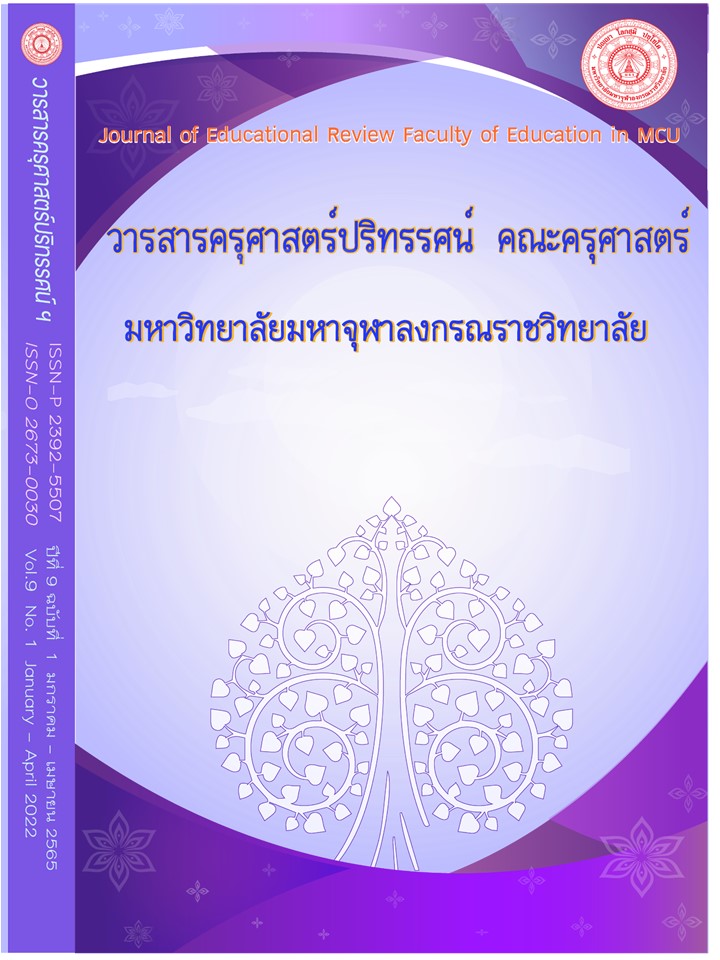ETHICS PROMOTING OF USING TECHNOLOGY TO POLICE SERGEANT STUDENTS
Main Article Content
Abstract
Nowadays, information technology has played an important role in almost every aspect of human life both social and work. The police sergeant students must have to adjust the way they live and work to be in line with the modern information technology era effectively. No matter how much information technology has grown and played a role in life, the most essential thing which police sergeant students should have is Ethics in Using Information Technology that Arlene H. Rinaldi of Florida Atlantic University has compiled the rules of etiquette: known as Netiquette as follows; 1) Don’t use a computer to harm and abuse others, 2) Don’t interfere with other people's work, 3) Don’t snoop on or modify, view in other people's files, 4) Don’t use a computer for information theft, 5) Don’t use a computer to produce false testimony, 6) Don’t copy other people's licensed programs, 7) Don’t violate the use of computer resources without the right, 8) Don’t take the works of others as your own, 9) Must take into account what will happen to the society follows from the action. 10) Must use a computer with respect to rules and etiquette. The author has a suggestion to promote the ethical use of information technology among the police sergeant students to make them aware of the ethics of using information technology. Moreover, when the police sergeant students have completed the training, they will take it as a guideline for practice or control the use of computer systems and information properly and appropriately.
Article Details

This work is licensed under a Creative Commons Attribution-NonCommercial-NoDerivatives 4.0 International License.
ทัศนะและความคิดเห็นที่ปรากฏในบทความในวารสารฉบับนี้ถือเป็นความรับผิดชอบของผู้เขียนบทความนั้นเพียงผู้เดียว และไม่ถือเป็นทัศนะและความรับผิดชอบของกองบรรณาธิการ
กองบรรณาธิการขอสงวนสิทธิ์ในการคัดเลือกบทความลงตีพิมพ์และจะแจ้งให้เจ้าของบทความทราบหลังจากผู้ประเมินบทความตรวจอ่านบทความแล้ว
ต้นฉบับที่ได้รับการตีพิมพ์ในวารสารครุศาสตร์ปริทรรศน์ คณะครุศาสตร์ มหาวิทยาลัยมหาจุฬาลงกรณราชวิทยาลัย ถือเป็นกรรมสิทธิ์ของคณะครุศาสตร์ มหาวิทยาลัยมหาจุฬาลงกรณราชวิทยาลัย ห้ามนำข้อความทั้งหมดหรือบางส่วนไปพิมพ์ซ้ำ เว้นเสียแต่ว่าจะได้รับอนุญาตจากมหาวิทยาลัยฯ เป็นลายลักษณ์อักษร
References
ชมบุญ ลาภอุปถัมภ์. (2562). จริยธรรมและกฎหมายที่เกี่ยวข้องกับการใช้อินเทอร์เน็ต. แหล่งที่มา http://202.29.239.50/temp/2562/internet2019/n9.html สืบค้นเมื่อ 6 ก.พ. 2563.
ชุมพล ศฤงคารศิริ. (2543). ระบบสารสนเทศเพื่อการจัดการ. กรุงเทพมหานคร: คลังวิชา.
ณัฏฐพันธ์ เขจรนันท์ และไพบูลย์ เกียรติโกมล. (2545). ระบบสารสนเทศ!เพื่อการจัดการ: Management Information System. กรุงเทพมหานคร: เอเชียเพรส (1999).
เนตร์พัณณา ยาวิราช. (2551). จริยธรรมธุรกิจ. กรุงเทพมหานคร: ศูนย์หนังสือจุฬาลงกรณ์มหาวิทยาลัย.
ภาวนา มาลากุล. แนวทางเสริมสร้างวินับของนักเรียนนายสิบตำรวจ ศูนย์ฝึกอบรมตำรวจภูธรภาค 5. แหล่งที่มา https://so04.tci-ijo.org/index.php/NBJ/article/view/253030/117180 สืบค้นเมื่อ 23 มี.ค. 2563.
ราชบัณฑิตยสถาน. (2554). พจนานุกรมฉบับราชบัณฑิตยสถาน พ.ศ. 2554. แหล่งที่มา https://dictionary.orst.go.th/ สืบค้นเมื่อ 6 ก.พ. 2563.
เอกภพ อินภู. (2558). หน่วยที่ 7 การประยุกต์ความเข้าใจเชิงจริยธรรมและเชิงกฎหมาย. แหล่งที่มา http:/WWW.teacher.ssru.ac.th/aekkaphobin/file.php/1/PDFUnit7.pdf สืบค้นเมื่อ 6 ก.พ. 2563.


